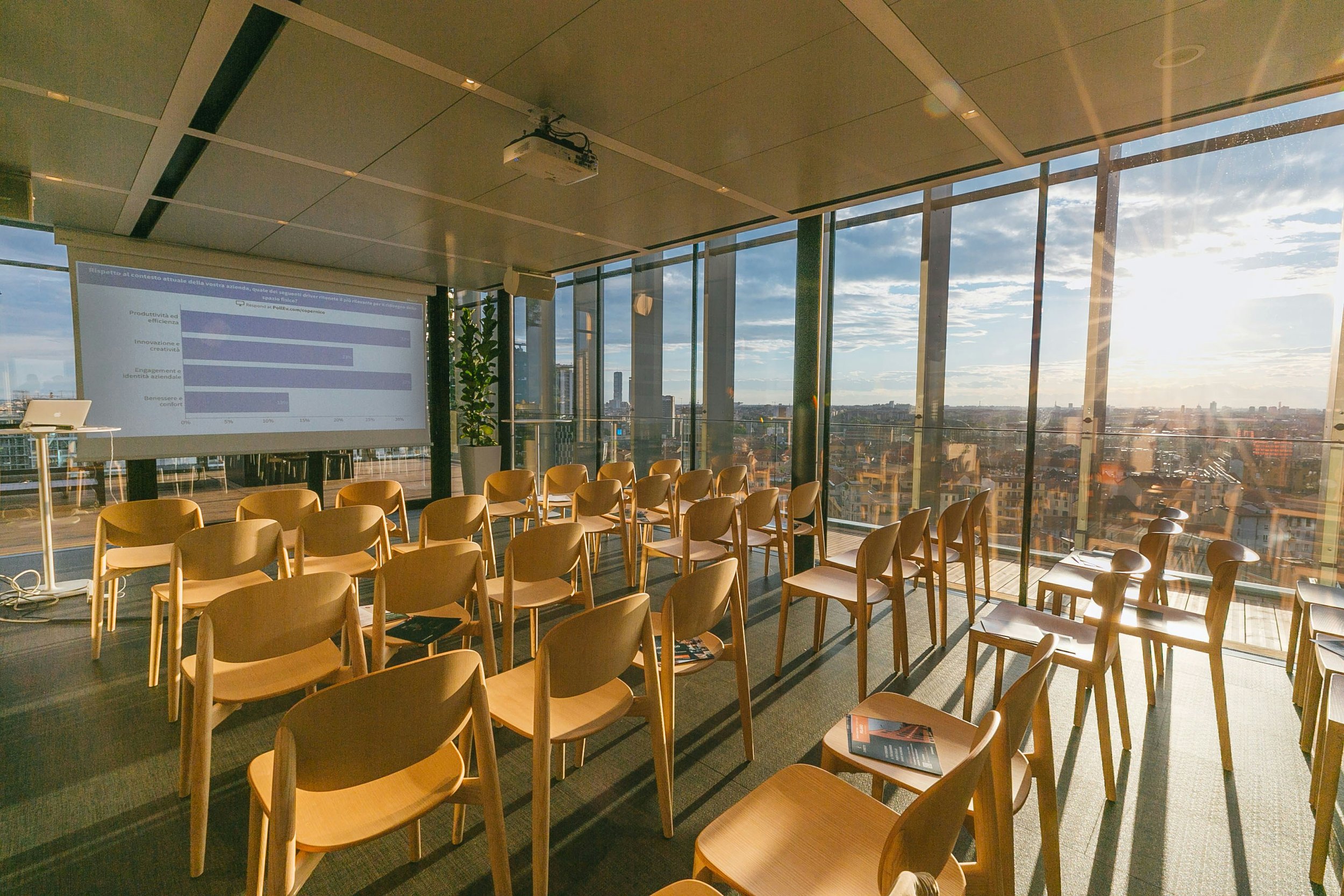Our Work
Our work highlights the research and insights of our community. Share your contributions by collaborating with ASO here. Subscribe to our free newsletter here.

Rethinking The Science of Muscle Tone - Part II
In this episode, ASO team member Erica Donnison continues her conversation with Dr. Tim Cacciatore, co-author of the open-access paper Central Mechanisms of Muscle Tone Regulation. Tim explores how these findings connect to key concepts in Alexander Technique teaching. A must-watch for teachers, trainees, and students. Paper linked in the article.

Rethinking The Science of Muscle Tone - Part I
In our 50th episode, Erica Donnison interviews Dr. Tim Cacciatore on muscle tone regulation, its role in balance, pain, and performance, and its significance for AT practitioners and clinicians. He addresses misconceptions about the reflex model and highlights how modern neuroscience advances our understanding of AT. Stay tuned for Part II. The paper linked here is open-access.

Bridging Practice and Research: Insights for Alexander Technique from Acupuncture Care and Research
In Episode 49, we explore the intersection of practice and research with Mandy Brass, MSc, a Traditional Chinese Medicine acupuncture practitioner. Mandy shares insights from her service evaluation at Dimbleby Cancer Care, an integrative oncology center in London. Using self-report measures, she captured her patients' experiences, offering valuable lessons for Alexander Technique teachers seeking to integrate research into their professional development.

Capturing Experience: Exploring Self-Report Measures in Alexander Technique Research
In Episode 47 we release a podcast style discussion with members of the Society of Teachers of the Alexander Technique (STAT) Research Group as they explore the use of self-report outcome measures in AT research. Widely used in research and healthcare, these tools allow individuals to share personal insights on their experiences and health. Join us for an insightful listen into how these measures can deepen our understanding of the Alexander Technique.

How Alexander Technique lessons can help family carers - Part II
In the second part of this two-part series, Monika Gross elaborates on communicating research findings into how Alexander Technique lessons can assist caregivers for individuals living with Parkinson’s, Dementia, and other medical conditions. Additionally, a copy of a podium presentation delivered at the 2023 European Alzheimer’s Conference is provided.

Partnering with Poise – Research into how Alexander Technique lessons can help family carers
In this 39th edition, we delve into new research on how Alexander Technique (AT) lessons can help people who are a Care Giver or Care Partner for someone living with Parkinson’s, Dementia or other medical conditions. Monika Gross from The Poise Project shares insights from recent research undertaken with the University of Idaho on both in-person and online AT courses. This first part of a two-part series outlines the research background, significant outcomes, and the real need for AT to support carers in this field.

Acoustic and Perceptual Effects of Alexander Technique Lessons
In the 38th ASO newsletter, Gabriella Minnes Brandes engages Michele A. Capalbo in a thought-provoking dialogue, spotlighting Michele's recent research on the acoustic and perceptual effects of Alexander Technique lessons for a classical treble singer. The interview, complemented by a written summary, helps expand and update our research base, providing valuable insights into the intricate relationship between Alexander Technique and voice to inform both teachers and future research.

An Interview with Monika Gross: Alexander Technique Research & Collaboration
Welcome to the 34th edition of the ASO newsletter. In this issue, we feature an illuminating interview with Monika Gross (The Poise Project) that revolves around crucial aspects such as bridging communication gaps between the Alexander Technique and other fields, amplifying public awareness of the profession, and establishing meaningful connections with research groups and healthcare practitioners.

Why research the Alexander Technique?
This month, ASO (Alexander Studies Online) introduces its first podcast-style post titled "Why research the Alexander Technique?" Join us for a discussion with the members of the Society of Teachers of the Alexander Technique Research Group (SRG) as they explore how curiosity, challenges, and practical insights from research on AT can relate to one's personal explorations and practice.

Building a new, open-access database of Alexander Technique research.
In this 11th edition of the Alexander Studies Online (ASO) newsletter we take a look at the developing ASO Research Collections project and the newly released Alexander Technique online Zotero library; a growing list of peer reviewed research on the Alexander Technique, PhD and Masters theses, and more.

Potential Mechanisms of the Alexander Technique: Toward a Comprehensive Neurophysiological Model
In this edition of the ASO blog series we hear from Tim Cacciatore PhD MSTAT and Rajal Cohen PhD M.AmSAT, two of the three authors of a recent paper published in the Kinesiology Review Journal. The paper, “Potential Mechanisms of the Alexander Technique: Toward a Comprehensive Neurophysiological Model” is an intriguing first step to help answer the question of why the Alexander Technique seems to have such wide-ranging benefits.
Archive
-
2026
- Jan 3, 2026 Applying the Alexander Technique in Dentistry: A Conversation with Dr Anikó Ball Jan 3, 2026
-
2025
- Dec 6, 2025 ASO Annual Review - 2025 Alexander Technique Research & Insights Dec 6, 2025
- Nov 1, 2025 Alexander Technique and Trauma: Exploring the Intersection Nov 1, 2025
- Oct 4, 2025 Hands, Wrists, Fingers; Mind, Heart, Soul Oct 4, 2025
- Sep 6, 2025 Psychotherapy, Counselling, and Alexander Technique Teaching: An Interview with Brigitta Mowat Sep 6, 2025
- Jul 12, 2025 Connected Conversations: Psychotherapy and the Alexander Technique Jul 12, 2025
- Jun 7, 2025 Capturing Well-being Outcomes: The Warwick Holistic Health Questionnaire and Its Relevance to Alexander Practice Jun 7, 2025
- May 3, 2025 Connected Conversations: Exploring the Space Between – Alexander Technique and Craniosacral Therapy Practice May 3, 2025
- Apr 5, 2025 Alexander Technique, Gender, and Embodied Empowerment Apr 5, 2025
- Mar 4, 2025 Rethinking The Science of Muscle Tone - Part II Mar 4, 2025
- Feb 4, 2025 Rethinking The Science of Muscle Tone - Part I Feb 4, 2025
- Jan 7, 2025 Bridging Practice and Research: Insights for Alexander Technique from Acupuncture Care and Research Jan 7, 2025
-
2024
- Dec 3, 2024 ASO Annual Review - 2024 Alexander Technique Research & Insights Dec 3, 2024
- Nov 5, 2024 Capturing Experience: Exploring Self-Report Measures in Alexander Technique Research Nov 5, 2024
- Oct 1, 2024 Exploring the Wisdom of Senior Teachers: Ruth Rootberg on 'Living the Alexander Technique’ Oct 1, 2024
- Sep 3, 2024 Putting the body back into prayer Sep 3, 2024
- Jul 2, 2024 Time as an element in the curriculum at The Royal College of Music Jul 2, 2024
- Jun 4, 2024 Part II - How can learning and using the Alexander Technique enable us to reduce and better manage chronic pain? Jun 4, 2024
- May 7, 2024 How can learning and using the Alexander Technique enable us to reduce and better manage chronic pain? May 7, 2024
- Apr 2, 2024 In Conversation: Regina Stratil's Path to Uncovering Irene Tasker's Story Apr 2, 2024
- Mar 5, 2024 How Alexander Technique lessons can help family carers - Part II Mar 5, 2024
- Feb 6, 2024 Partnering with Poise – Research into how Alexander Technique lessons can help family carers Feb 6, 2024
- Jan 2, 2024 Acoustic and Perceptual Effects of Alexander Technique Lessons Jan 2, 2024
-
2023
- Dec 5, 2023 A Year of Exploration: Annual Review & Research Discoveries Dec 5, 2023
- Nov 7, 2023 Restoring carers to themselves through the Alexander Technique Nov 7, 2023
- Oct 3, 2023 Opera and Alexander Technique: What are the connections? Oct 3, 2023
- Sep 5, 2023 An Interview with Monika Gross: Alexander Technique Research & Collaboration Sep 5, 2023
- Jul 4, 2023 Why research the Alexander Technique? Jul 4, 2023
- Jun 6, 2023 Soma in the City: How does listening and responding to a ‘somatic podcast’ drawing on the Alexander Technique, affect one’s relationship with urban space? Jun 6, 2023
- May 2, 2023 Why have a curriculum for an experiential practice? May 2, 2023
- Apr 4, 2023 Lighten Up! A conversation with Rajal Cohen - Part II Apr 4, 2023
- Mar 7, 2023 Lighten Up! A conversation with Rajal Cohen - Part I Mar 7, 2023
- Feb 7, 2023 Embodied practices, the Alexander Technique, and self-compassion: An interview with Lisa Harris Feb 7, 2023
- Jan 3, 2023 ‘What on earth do we do with this data?’ Two experiences of writing up research for publication Jan 3, 2023
-
2022
- Nov 1, 2022 Alexander Technique group lessons in an exercise program for women following treatment for breast cancer: An Interview with Alazne Larrinaga Nov 1, 2022
- Oct 4, 2022 A New Alexander Technique Publication in the British Medical Journal on Low Back Pain: An Interview with Carolyn Nicholls Oct 4, 2022
- Sep 6, 2022 The Healthy Young Musician Project: Alexander Technique Research at the Royal Academy of Music Sep 6, 2022
- Aug 2, 2022 Violin, Science, and the Alexander Technique: An Interview with Researcher Alison Loram and Special Guests Aug 2, 2022
- Jul 5, 2022 Is it time to take stock of Alexander Teacher education? Research offers the means whereby. Jul 5, 2022
- Jun 7, 2022 A Technique for Musicians Jun 7, 2022
- May 3, 2022 Psychological and other ‘non-physical’ changes following Alexander Technique lessons May 3, 2022
- Apr 5, 2022 Finale - Working With Musicians: Application of The Alexander Technique to Music Making Part III Apr 5, 2022
- Mar 1, 2022 Working With Musicians - Application of The Alexander Technique to Music Making Part II Mar 1, 2022
- Feb 1, 2022 Working With Musicians - The Application of The Alexander Technique to Music Making Part I Feb 1, 2022
- Jan 4, 2022 One year into the Alexander Studies Online project - how are we doing? Jan 4, 2022
-
2021
- Dec 7, 2021 How Women Use The Alexander Technique In The First Year After Birth Part III Dec 7, 2021
- Nov 2, 2021 How Women Use The Alexander Technique In The First Year After Birth Part II Nov 2, 2021
- Oct 5, 2021 How Women Use The Alexander Technique In The First Year After Birth Oct 5, 2021
- Sep 7, 2021 Building a new, open-access database of Alexander Technique research. Sep 7, 2021
- Aug 3, 2021 Looking both ways: A new teacher’s perspective on uncertainty Aug 3, 2021
- Jul 20, 2021 ATLAS commentary Parts III and IV Jul 20, 2021
- Jul 6, 2021 ATLAS commentary Parts I and II Jul 6, 2021
- Jun 1, 2021 Potential Mechanisms of the Alexander Technique: Toward a Comprehensive Neurophysiological Model Jun 1, 2021
- May 4, 2021 ATEAM Commentary Part II May 4, 2021
- Apr 5, 2021 ATEAM Commentary Part I Apr 5, 2021
- Mar 2, 2021 Learning from People Living with Parkinson’s Disease: Ten tips from the field Mar 2, 2021
- Feb 2, 2021 Disciplined inquiry and the Alexander Technique teacher: What is it, why do it? Feb 2, 2021
- Jan 27, 2021 Pt. II of Supporting People with Dementia: a Role for Alexander Technique Teachers? Jan 27, 2021
- Jan 27, 2021 Pt. I of Supporting People with Dementia: a Role for Alexander Technique Teachers? Jan 27, 2021
- Jan 5, 2021 The ASO Newsletter - 2nd edition Jan 5, 2021
-
2020
- Dec 1, 2020 The ASO Newsletter - 1st edition Dec 1, 2020
- Oct 18, 2020 Welcome: An Overview of ASO Oct 18, 2020